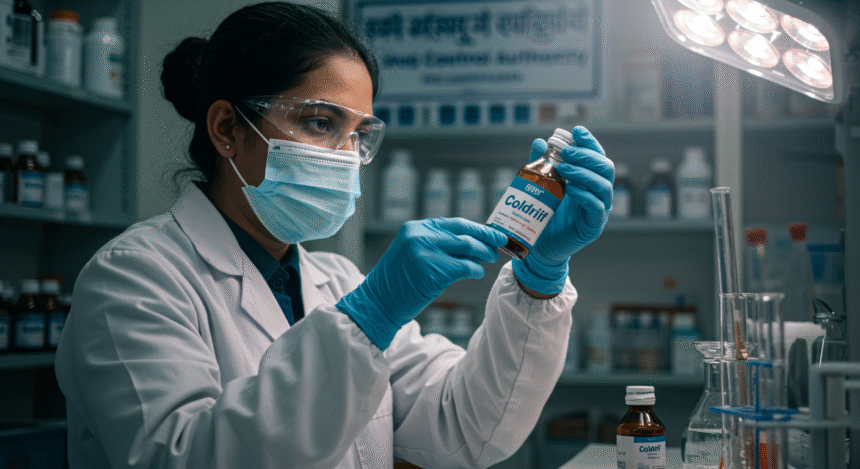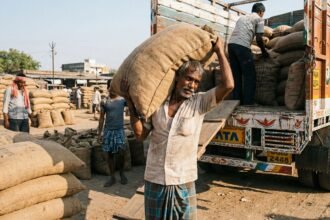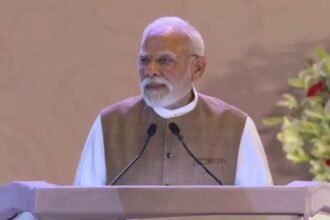New Delhi & States: The central government on Saturday acknowledged that the contentious cough syrup Coldrif contains diethylene glycol (DEG) in quantities exceeding permissible limits, reversing its earlier position that the medicine was safe. The admission follows laboratory reports from Tamil Nadu’s drug control authorities. Several states including Madhya Pradesh, Rajasthan and Tamil Nadu have imposed an immediate ban on the sale and distribution of the formulation.
In Madhya Pradesh’s Chhindwara district, officials have linked the deaths of multiple children suffering acute kidney failure to the use of the syrup. The state’s Food & Drugs Administration (FDA) has seized 433 bottles suspected to be contaminated; 222 of those bottles were already sold before the ban.
The lab tests reportedly show DEG at 48.6 % w/v a level considered highly toxic and far above any permissible safety threshold. In response, Madhya Pradesh’s government has halted all distribution of Coldrif and ordered strict action against those responsible including suspension of other drugs manufactured by the same company pending investigation.
In Rajasthan the government has similarly suspended the state drug controller and withdrawn medications from Kaysons Pharma factories following reports of 11 child fatalities linked to contaminated syrups. Meanwhile Telangana’s Drug Control Administration issued a public alert to consumers calling for the immediate removal of Coldrif (Batch SR-13, May 2025) from the market.
The Health Ministry has formally confirmed that samples of Coldrif manufactured by Sresan Pharma, Kanchipuram, contain DEG levels above acceptable norms. Central drug regulator CDSCO is conducting audits of manufacturing units across six states while health authorities have issued warnings against prescribing cough syrups to children under two years of age.
The unfolding scandal echoes past international incidents in which adulterated paediatric syrups caused mass fatalities especially the 2022 Gambia tragedy when cough syrups manufactured in India were linked to over 60 child deaths.
As the investigations deepen public health experts and patient safety advocates are demanding accountability improved regulatory scrutiny and swift medical follow-up for affected families.















